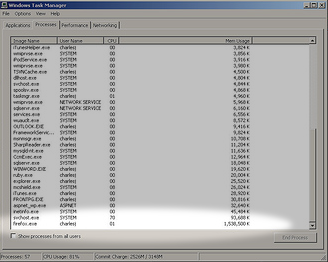I mean, g’day Planet.
Hi. I’m Nigel Tao. You might know me from such GNOMEly things as:
- The Deskbar applet, now going places (without my help) such as Big Board, and Sebastian Pölsterl‘s refactoring Summer of Code project,
- SuperSwitcher, a compelling replacement for Alt-Tab (since it it also does workspaces-on-demand, and find-as-you-type window selection), and
- The Bloggers of Planet GNOME search box (which is also embedded on the sidebar at p.g.o). For example, compare its search results for [soylent] with searching Google in general for [soylent]. It’s not perfect right now, but it will get better.
I would like to echo Prashanth Mohan’s recommendation of Rob Pike’s Newsqueak talk (and the elegance of the Sieve of Eratosthenes program). Also, there are many more Google Tech Talks, where all sorts of interesting (and not so interesting) technical people drop by Google HQ and, uh, talk. For example, Aza Raskin of Humanized gave one recently titled Away with Applications: The Death of the Desktop demonstrating Enso (which I’ve previously mentioned).
Warning: this paragraph of interest to programming language buffs only :-). In Newsqueak, variable declaration looks like i: int (compared to C’s int i), and assignment is the bog-standard (although mathematically lax) i = i + 1. One cute little syntactical feature is that you can combine declaration and assignment to write i := 42 to (loosely speaking) be a short-hand equivalent to i: typeof(42); i = 42, sort of like how i += 1 is short-hand for i = i + 1. It looks like Pascal’s old-school assignment operator, but it is in fact two separate operators, and you can even put whitespace in between to get i: =42.
Finally (in the small print section), these posts are entirely my own personal opinions and do not necessarily represent the views of my employer, blah blah blah, yadda yadda yadda.
